Empowering Families with Community Support Structures
Community support groups play a pivotal role in fostering family resilience, emotional well-being, and social integration. These networks provide essential resources, emotional encouragement, and opportunities for shared learning, enabling families to navigate health challenges, disabilities, and life transitions more effectively. This article explores the multifaceted ways community support groups empower families, highlighting programs, strategies, and the vital role of community engagement in strengthening family units.
Types of Community Support Services that Foster Family Resilience
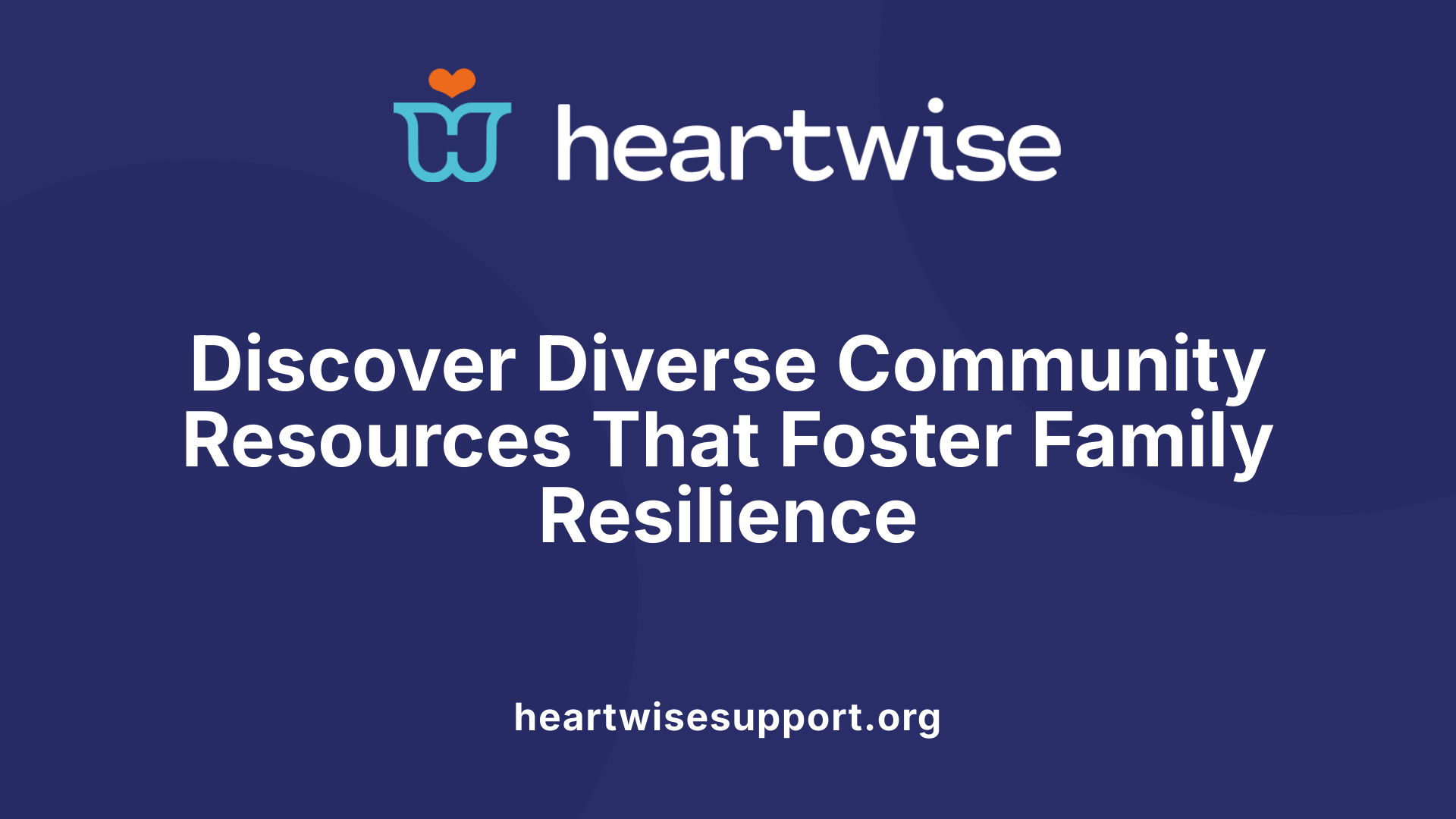 Community-based family support services encompass a wide range of resources and programs designed to help families overcome challenges and promote resilience. One of the foundational components is resource directories and training centers. These hubs provide families with access to essential information, skill-building workshops, and guidance tailored to local needs.
Community-based family support services encompass a wide range of resources and programs designed to help families overcome challenges and promote resilience. One of the foundational components is resource directories and training centers. These hubs provide families with access to essential information, skill-building workshops, and guidance tailored to local needs.
Home-based services play a crucial role in supporting families directly within their homes. These include parent education programs that teach positive parenting skills, case management to coordinate services, and visitation programs that facilitate safe and meaningful contact with children. Such services help nurture stronger family bonds and stability.
Community organizations are vital connectors, offering peer support networks where parents and caregivers can share experiences, advice, and encouragement. These groups often organize activities and provide access to additional resources like affordable child care, mental health counseling, and assistance with public benefits, easing daily stressors and improving family well-being.
Educational classes such as the Systemic Training for Effective Parenting (STEP) are typically offered virtually at no cost. These classes focus on improving communication, conflict resolution, and nurturing parenting techniques, thereby strengthening parent-child relationships and fostering healthier home environments.
Government agencies complement these efforts by delivering essential services aimed at ensuring child safety and family stability. Agencies like the Department of Children and Families and the Administration for Children and Families provide programs addressing domestic violence prevention, child protective services, and family preservation initiatives.
Together, these diverse community-based services create a comprehensive support web that empowers families to navigate life's challenges effectively, fostering resilience and enhancing overall community well-being.
How Support Groups Foster Emotional, Social, and Practical Family Empowerment
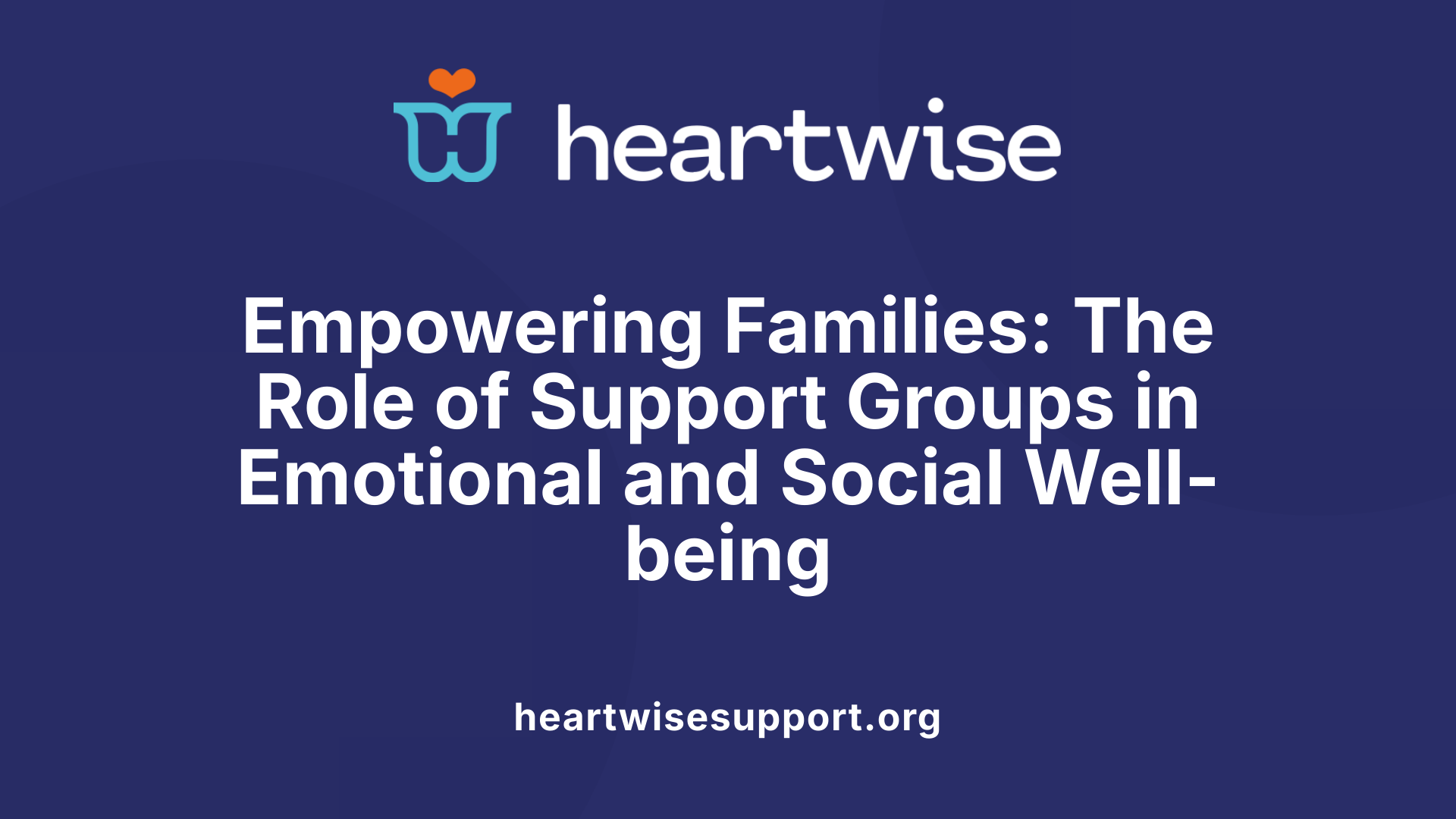
How do community support groups empower families through emotional, social, and practical support?
Community support groups play a vital role in strengthening families by offering a safe space where members can find emotional encouragement and a sense of belonging. These groups help families navigate difficult situations related to health issues, disability, poverty, or discrimination. Sharing personal stories and coping strategies in a supportive environment allows families to feel understood and less isolated.
Regular meetings—whether in person or virtual—facilitate social connections that build trust and camaraderie among participants. Culturally tailored programs ensure that diverse communities, including Latino and bilingual families, are represented and supported. These connections foster a strong community network, which can lead to greater resilience and collective empowerment.
In addition to emotional support, support groups serve as practical resources for families. They often provide relevant educational materials, connect families with local services, and advocate for their needs within broader policy discussions. Activities such as parenting workshops, leadership camps, and dialogue initiatives promote family involvement, increase community engagement, and empower families to have a voice in civic processes like voting.
Overall, community support groups strengthen family well-being by fostering emotional resilience, building social bonds, and offering tangible tools for active participation and advocacy. They help families feel more confident, connected, and capable of overcoming challenges, contributing to a healthier, more inclusive community.
Impact of Community Resources and Engagement on Family Empowerment
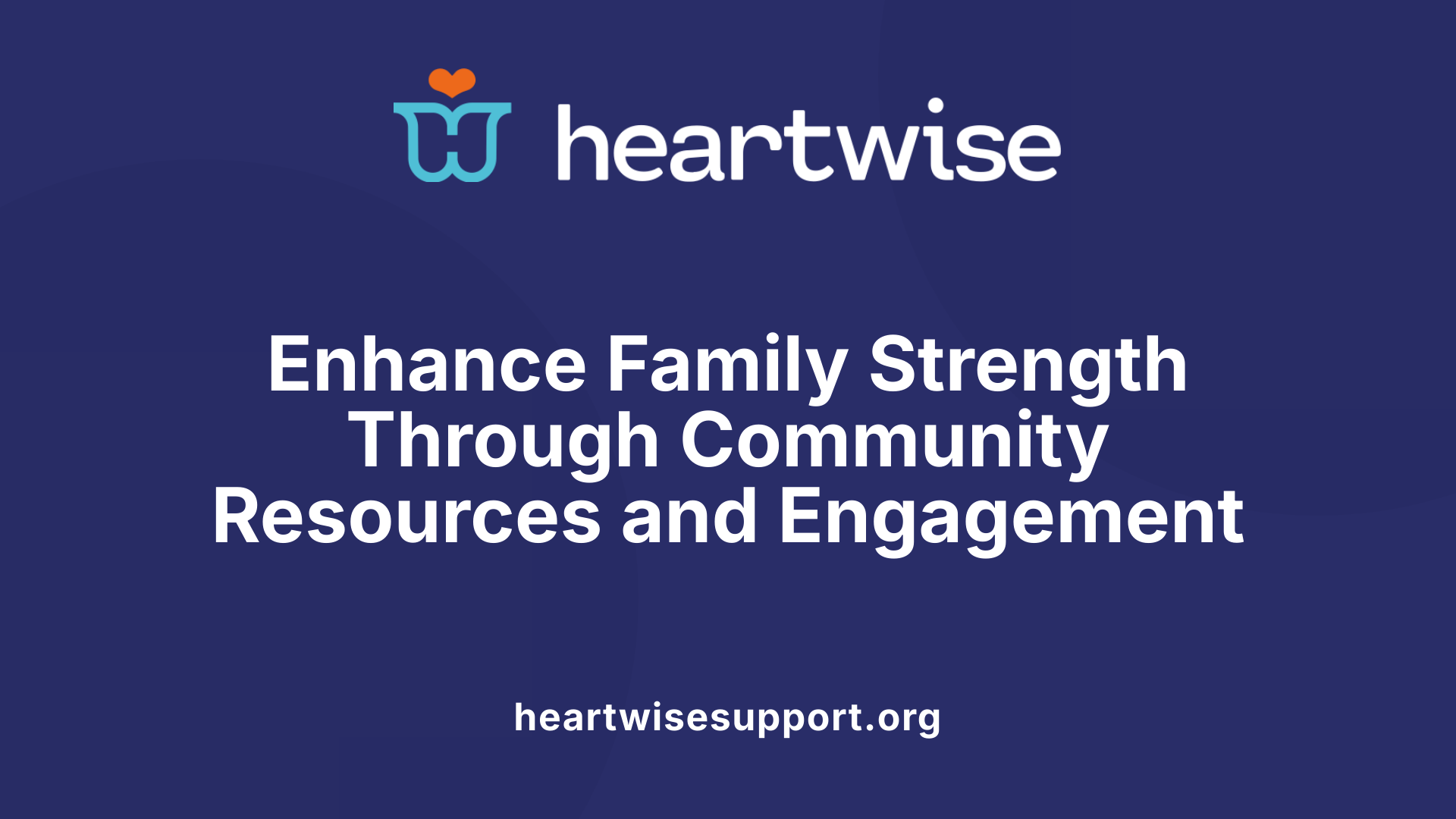
How do community resources, activities, and engagement initiatives enhance family empowerment?
Community involvement plays a vital role in strengthening families. By providing a broad range of services, educational opportunities, and social networks, families gain the support they need to navigate challenges confidently. Local programs like family support centers serve as hubs where families can access parenting education, mental health counseling, and economic assistance.
Creating welcoming spaces such as the Family and Community Empowerment Center fosters a sense of belonging and collaboration. These centers facilitate connections among families, community organizations, and service providers, ensuring that support is accessible and tailored to meet local needs.
Understanding and respecting cultural backgrounds is crucial. Resources and programs designed with cultural sensitivity help families feel seen and understood, enhancing their willingness to participate and benefit from available services. Effective communication ensures families are aware of what resources are available and how to access them in a timely manner.
Activities focused on self-care and parenting support are especially impactful. Workshops, peer support groups, and recreational activities promote caregiver well-being, improve parenting skills, and build confidence.
Collectively, these efforts nurture community bonds, develop resourcefulness, and foster family resilience. They enable families to feel empowered, more self-reliant, and capable of providing stable, nurturing environments for children. Ultimately, the integration of community resources and active engagement efforts creates a supportive ecosystem that underpins family strength and well-being.
Family and Peer Support Groups: Building Strength and Resilience
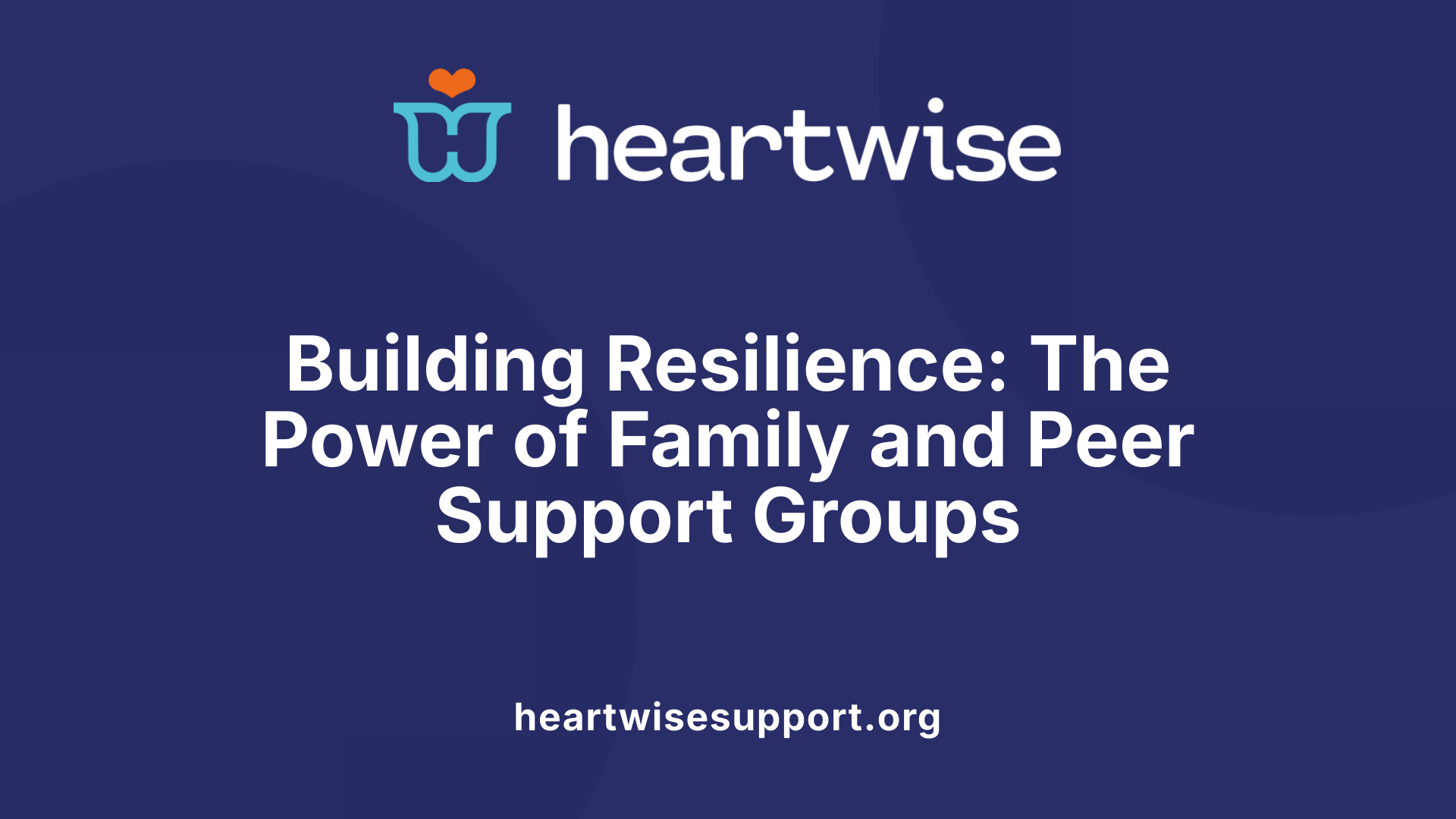
What are the benefits and impact of family and peer support groups on family well-being and resilience?
Family and peer support groups provide an essential source of emotional comfort and practical guidance for families facing various challenges. By sharing common experiences, members find reassurance and understanding, which significantly boosts emotional well-being. These groups help reduce feelings of loneliness and stigma, allowing caregivers and family members to connect with others who truly understand their situation.
Participating in such groups enhances resilience by fostering a sense of empowerment and confidence. They offer practical information on caregiving strategies, mental health management, and navigating healthcare systems. This practical support helps families handle their daily responsibilities more effectively, building their capacity to overcome obstacles.
Moreover, engagement in peer-led groups, whether in-person or virtual, provides flexibility and wider access. These settings promote social interaction, which can lead to improved mental health outcomes, including lower levels of stress, depression, and anxiety. The sense of community and shared purpose encourages hope and motivation, essential for ongoing well-being.
Overall, family and peer support groups contribute significantly to strengthening family resilience by offering emotional support, practical advice, and fostering a connected community. They serve as a vital resource in empowering families to face health, behavioral, and social challenges with greater confidence and stability.
Supporting Families Facing Health Challenges and Life Changes
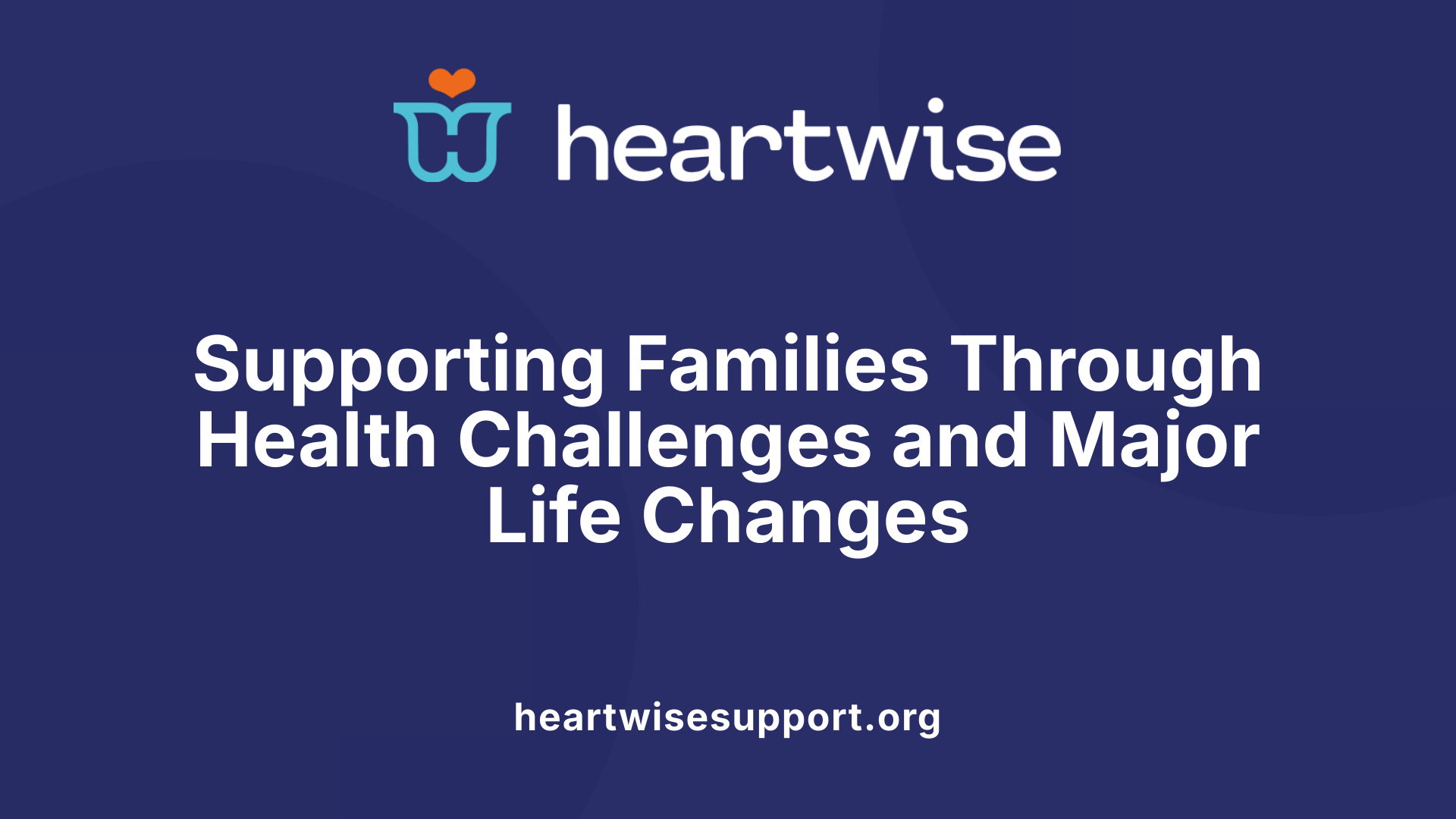
How do community support groups support families facing health challenges, disabilities, or significant life changes?
Community support groups play a vital role in helping families navigate health challenges, disabilities, or major life transitions. These groups typically provide a structured, confidential environment where peers—other families experiencing similar issues—share emotional and practical support.
Support groups facilitate open sharing of experiences and coping strategies, promoting resilience and a sense of community. This support helps reduce feelings of loneliness, frustration, and helplessness that often accompany difficult life circumstances.
In addition to emotional backing, these groups offer targeted resources such as informational materials, advocacy guidance, and referrals to relevant services. Education sessions on managing specific conditions or navigating complex systems empower families to advocate for themselves and their loved ones.
Most groups are free and meet regularly, creating consistent opportunities for connection and learning. They emphasize understanding, hope, and collective strength—core elements that significantly improve overall family well-being.
Community-led initiatives and collaborations also encourage families to participate in policy and program development. Such involvement ensures that services are better tailored to meet the diverse and evolving needs of families, promoting greater equity and inclusion.
Overall, community support groups foster a nurturing environment where families can rebuild confidence, access critical resources, and become active advocates for their needs, strengthening their resilience amid health challenges and life changes.
Strategies and Strategies that Strengthen Family Empowerment through Community Support
What strategies, programs, and initiatives facilitate family empowerment via community support networks?
Community support networks play a vital role in strengthening families. One effective approach is the development of peer-led groups where parents and caregivers share experiences, advice, and encouragement. These groups empower families by fostering a sense of belonging and mutual support.
Resource fairs are another valuable strategy, bringing together local organizations and service providers to connect families with essential resources such as housing, healthcare, and employment support. These events increase awareness and access to services, helping families navigate complex systems.
Educational initiatives like family workshops and support programs further promote empowerment. Programs such as Family Empowerment Services (FES) and the Office of Family Empowerment (OFE) offer personalized assessments to understand family needs, assist in resource navigation, and support economic stability.
Collaboration is key. These programs partner with schools, community centers, and nonprofits to broaden their reach. By leveraging community relationships, they create integrated support systems that address diverse family needs.
Community centers and family support centers serve as hubs for ongoing activities, peer support, and informational sessions, reinforcing social capital and community resilience. They also organize culturally relevant events and services, making support accessible to all families.
Targeted services delivered through these initiatives include mental health counseling, economic assistance, parenting education, and social activities—each designed to build family capacity.
Through cross-sector collaboration among healthcare, education, social services, and local businesses, families receive comprehensive support that boosts their ability to thrive.
In summary, combining peer support groups, resource fairs, personalized assessments, community partnerships, and educational programs creates a strong support framework. This integrated approach empowers families, promotes stability, and nurtures resilient communities.
Family Engagement, Training, and Education: Building Stronger Families
Participation in community-based family support groups offers a multitude of advantages, fostering stronger, more resilient families. These groups provide a platform for sharing experiences and gaining emotional support, which significantly reduces feelings of loneliness and stigma often associated with health or mental health challenges. By connecting families with others facing similar issues, they cultivate a sense of belonging and community, empowering members to navigate their circumstances more confidently.
One of the main benefits is enhancing coping mechanisms and resilience. Support groups offer practical advice, emotional encouragement, and shared strategies for managing stress and health concerns. This collective learning not only improve individual and family well-being but also strengthen mental health outcomes.
Access to valuable community resources and improved health literacy are further advantages. Groups often provide information on local services, educational materials, and guidance to better understand and navigate healthcare and support systems. This access helps families manage ongoing health or caregiving challenges more effectively, fostering independence and confidence.
Support groups also play a vital role in fostering effective support systems. They create networks of understanding caregivers and individuals, which can extend beyond meetings to lifelong connections. These networks serve as ongoing sources of emotional reinforcement, practical help, and advocacy, vital for managing complex health, mental health, or caregiving issues.
What benefits do family engagement, training, and education through community-based support groups offer?
Family engagement, training, and education through community-based support groups offer numerous benefits for individuals facing health, mental health, or caregiving challenges. These groups provide a safe and supportive environment for sharing experiences, reducing feelings of loneliness and stigma, and fostering a sense of belonging. They enhance coping skills, emotional resilience, and mental well-being by offering practical advice, emotional support, and encouragement. Support groups also facilitate access to valuable resources, improve health literacy, and help participants better navigate healthcare systems. Overall, they empower families and individuals to manage their conditions more effectively, leading to improved emotional health, motivation, and quality of life.
What is the structure and purpose of peer-led family support groups, and what are their advantages?
Peer-led family support groups are organized by individuals with shared experiences, such as caregivers or patients, and provide a safe, relatable environment for mutual support, information sharing, and emotional encouragement. Their structure typically includes small, informal gatherings—either in person, by phone, or online—facilitated by peers or occasionally health professionals, with a focus on sharing personal stories, coping strategies, and practical resources. The purpose of these groups is to reduce social isolation, enhance self-efficacy, and improve overall well-being by fostering peer connections and empowerment, while complementing professional healthcare. Advantages of peer-led support groups include increased feelings of hope, motivation, and social support, as well as the opportunity for members to learn from each other's experiences and navigate health systems more effectively. Despite some challenges like maintaining boundaries and ensuring accurate information, these groups offer significant psychosocial benefits and contribute to better health management for participants.
This approach to family empowerment and community participation underscores the importance of accessible, collaborative support networks, which play a crucial role in promoting healthier, more resilient families.
Fostering Resilient Families and Communities
Ultimately, community support groups serve as vital pillars for family empowerment, offering emotional refuge, practical resources, and opportunities for collective growth. By fostering inclusive, culturally sensitive, and accessible support networks—both in person and online—these groups create enduring community bonds that nurture resilience and well-being. Strategic programs and ongoing engagement efforts are essential to sustain these vital networks, ensuring that every family has the opportunity to thrive in a supportive, empowered environment.
References
- Empowering Families Through Community Support
- Support groups: Make connections, get help - Mayo Clinic
- Empowering Families: The Role of Group Peer Support for Parents
- 4 Best Practices for Connecting Families to Community Resources
- Empowering Families - Folsom Cordova Community Partnership
- [PDF] Empowering Families: Partnering with Communities to Deliver ...
- Starting and Sustaining Family Support Groups











